Breath by breath, step by step
In the mountains of northern Spain's Navarra region, Satish Kumar reminds us that part of being an activist is simply showing up; acting, breath by breath, step by step.
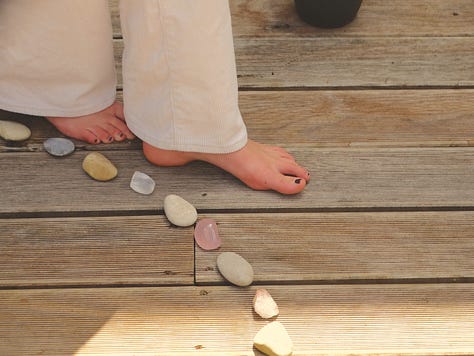
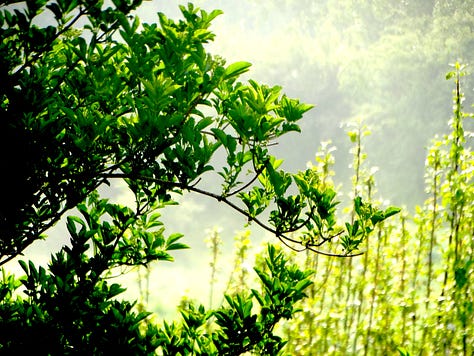



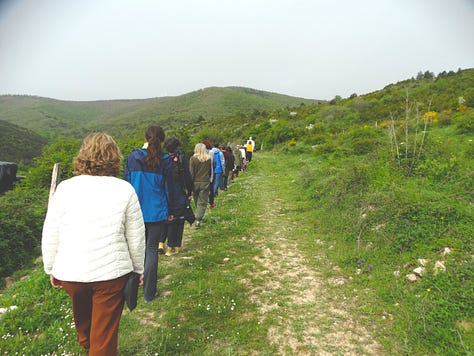
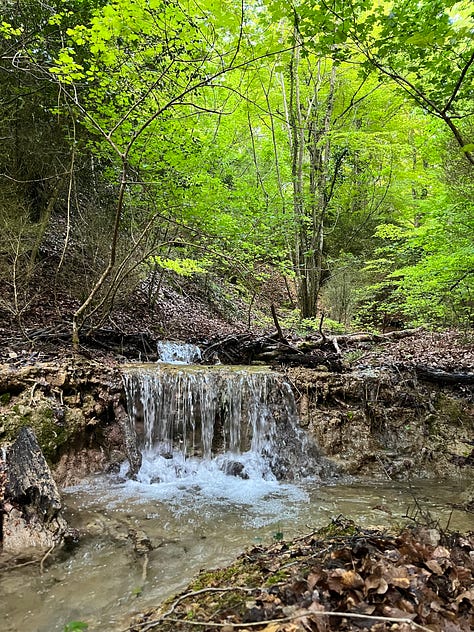

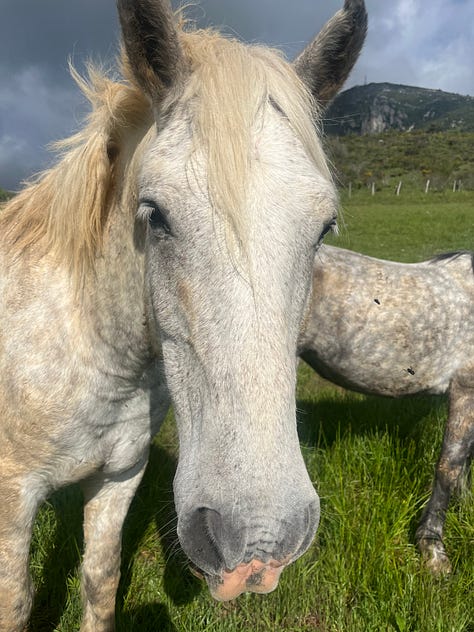
It was a blessing to take part in the Radical Love retreat at Equisoain, a name that means “place of the Sun” in Euskara, the ancient Basque language. This renovated castle is steeped in history and stone-walled-stories, much like the forests and rivers that both grow and flow through northern Spain.
Stowed amongst these mountains, Equisoain is a sanctuary for reflection, surrounded by rivers and a diversity of trees: beech, boxwood, and oak, which artist Eliana Perinat took the time to explain on walks. I also loved the chance to ponder the intricacies of these natural formations, through looking and not looking, amongst the long grass in her guided drawing class.
“Sketch as if you're stroking the tree, plant, or flower itself,” Eliana would tell us, constantly encouraging us to shift our perspective and engage with attentive connection.
Equisoain lies near the Camino de Santiago Aragonés, a quieter but deeply storied route of the pilgrimage. I stayed in the medieval town of Monreal, where the air carries the scent of wood smoke and the layered history of comings and goings. This Camino begins at the Somport Pass in the Aragonese Pyrenees, on the French-Spanish border, and winds westward until it merges with the more well-known Camino Francés at Puente la Reina in Navarre.
Whilst I briefly considered spontaneously walking the Camino de Santiago (something I’ve always dreamed of), I instead opted for gentler walks and refreshing dips in the river. We spotted butterflies, vultures, and, though we only heard in the distance, a cuckoo and a multitude of different birds. I’m told that wild boar and roe deer also roam freely through these forests, even under the watchful eyes of the Basajaun (the wild forest guardian said to protect the animals and whisper warnings through the rustling trees in Basque mythology).
To follow Satish’s footsteps is to walk behind years of experience. “I put one foot in front of the other for two years and arrived in the States from India,” Satish laughed later that day.
Satish reminded us that this principle, of taking things step by step, breath by breath, can also be applied to our work as activists: for ourselves, our communities, especially in times of overwhelm and panic. Satish’s message came through clearly: the antidote to climate anxiety is to act. I think it was this that stood out to me the most:
"An activist isn’t a special type of person, every person is a special kind of activist.
Our activism must grow broader and deeper. It should extend beyond our families and into our neighbourhoods and communities.
There are many layers to community, you might be part of a community of artists, environmentalists, permaculturists, or renewable energy advocates. Each of us must ask: Which community do I truly belong to?
Of course, we can belong to multiple communities, but our time and energy are limited. So we have to choose one or two where we can make a real impact. Ask yourself: how much time can I give, so that I can give meaningfully to another?"
Rather than unpack Satish’s words myself, I’d love to hand this worded offering to you, fellow reader, as a prompt, something you might take to pen and paper, or simply sit with in quiet reflection.
Throughout the weekend, we were guided through talks combined with movement, meditation, art, yoga, nourishing food, and our communally created holistic soup, hot with the spices of enriching conversation, smooth with the blend of grounding practices and root vegetables. (Since I put coconut milk in everything), It was also laced with the cool, coconuty, soothing notes of silent moments spent with the rivers and trees.
Beneath the canopy of lime-green light, like stained glass in the temple of the forest, I contemplated the history of this land.
I often do so in unfamiliar places, where the residue of the past lingers like a sensation - a taste you can’t quite place. Remnants of peoples and empires, of times that did not outlive the forests or the rivers that run beyond.
In Basque lore, the woods are watched over by ancient spirits; the oak especially is sacred to Mari, the earth goddess who moves through the mountains in shifting weather. And while Basque mythology and practices remain a winding root in the fabric of this region, the relationship to the land is one shared by many for those who live in Navarra, whether or not they identify as Basque.
Across the region, traditional ways of farming and settlement speak are attuned with nature, guided by the turning of the seasons and an enduring reverence for ecological rhythm.
This mindset of land as kin rather than resource may help explain why, even today, parts of northern Spain retain some of the most ancient and well-preserved forests in Europe.
The Basque people, Euskaldunak, have kept their language, identity, and ways of living through centuries of cultural suppression. They relate to rivers, trees, and mountains as animate, sacred, and alive. In this very spirit, I discovered a collective of artists who gather each year in Spain to host the Arbola Fest: “An undisciplined meeting space for all types of contemporary thinkers interested in tree and plant culture.”
Further readings, happenings & connections
Equisoain
Discover more about the retreat centre and its programs at equisoain.com, or follow along on Instagram: @equisoain.eki@elianaperinat
Art therapy: www.elianaperinat.com/arteterapia-exploracion-creativa-y-personal
@arteterapia_eliana
La Asociación Cultural Despierta
A collective of communications and sustainability specialists committed to addressing environmental degradation and cultivating active, creative responses to ecological and social challenges.Radical Love: From Separation to Connection with the Earth, Each Other, and Ourselves
A new book by Satish Kumar explores how we can root activism in love, connection, and reverence for the Earth.Arbola 2025
Taking place from June 11–15 in Labeo, this year’s Arbola Festival will bring together artists and educators from five countries. In the lead-up throughout May, the program includes artist residencies, gardening workshops, talks, and tree education walks.







"residue of the past lingers like a sensation - a taste you can’t quite place." beautifully put :)